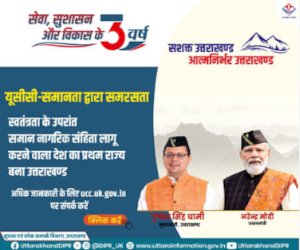In a landmark move aimed at delivering timely justice to servicemen and veterans, the Uttarakhand High Court has issued new guidelines to fast-track legal cases involving serving or retired military personnel and their dependents. The directives, approved by Chief Justice G. Narender, come into immediate effect across all subordinate courts in the state.
In a detailed order, the court instructed that all cases related to military personnel be identified and specially tagged or colour-coded to ensure priority hearing. The initiative aims to prevent long delays in proceedings affecting those who serve or have served in the armed forces.
Our correspondent reports that the Uttarakhand Judicial and Legal Academy (UJALA), Bhawali, has been assigned to conduct special training sessions for judicial officers. These will cover key legal provisions such as the Army Act 1950, Navy Act 1950, and Air Force Act 1950 to enable judges to handle such cases effectively.
The High Court has also directed that unnecessary delays in summoning serving or retired military personnel be avoided. Hearing schedules must take into account their service commitments, ensuring they can participate without affecting duty obligations.
Our correspondent adds that the new framework also requires commanding officers or district military boards to be informed in cases involving arrest or property attachment. The court encouraged use of Lok Adalats or mediation centres for dispute resolution, particularly when cases do not fall under the jurisdiction of military tribunals. Matters within tribunal scope must be transferred promptly.
Beneficiaries of the order will include personnel from the Indian Army, Navy, Air Force, Central Armed Police Forces, Border Security Force, CRPF, and their dependents. The directive also extends to disabled veterans and dependents of deceased soldiers, ensuring faster and fairer legal redress.
Legal experts have welcomed the move as a progressive step toward reducing pendency and strengthening trust between the judiciary and the defence community. Many veterans’ associations in Uttarakhand, which has a large ex-servicemen population, have lauded the order as recognition of the sacrifices made by armed forces personnel.
The High Court has made clear that any non-compliance with these directions will invite scrutiny. Subordinate courts are required to submit regular progress reports on the number of military-related cases and the status of their hearings.
By implementing these guidelines, Uttarakhand joins other states that have initiated reforms for faster resolution of military cases. The emphasis now lies on effective execution, consistent oversight, and judicial accountability to ensure that the new system delivers on its promise.
























